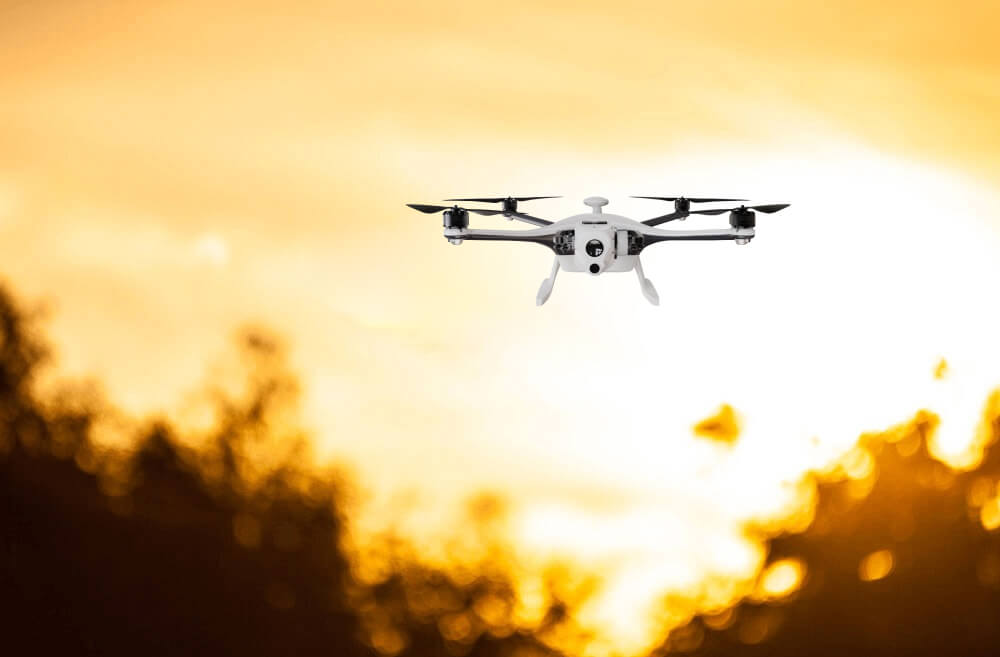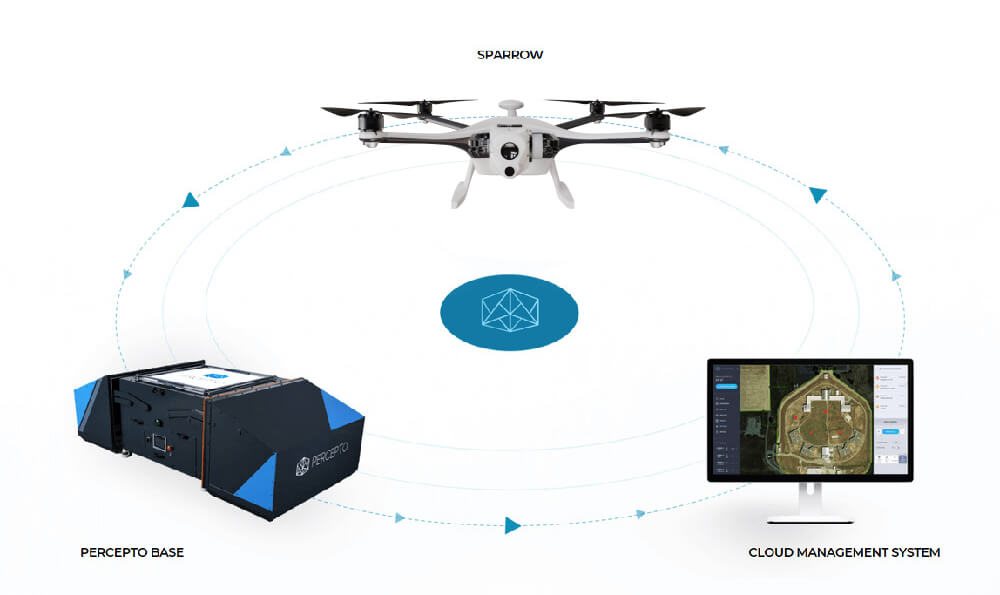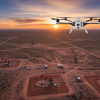Like many cutting-edge technologies in the Industry 4.0 movement, drone-in-a-box solutions are being explored and evaluated for their benefits to site operations. Drones have played a large role in the overall evolution of Industry 4.0, offering smarter, more efficient and cost-reducing ways for companies to embrace the next industrial revolution.
Creates New Jobs
One of the main concerns regarding drones in the past few years comes from fear of losing jobs. People are worried that their jobs will be replaced by drones or will simply not exist. But it’s a fear that can be eliminated with education about the benefits of drones.
Yes, drone-in-a-box technologies automate jobs of key workers and can operate without pilots or expensive human monitoring – however, that doesn’t mean that drones will fully replace employees in manufacturing settings.

Instead, the introduction of drone-in-a-box technology encourages employees to evolve a new skill set, including analyzing drone data sent, using this data to inform forward-facing strategies about business operations and working within cloud-management systems to coordinate drone fleets.
According to the Association of Unmanned Vehicle Systems International (AUVSI), drones and related technologies are projected to contribute $82 billion to the U.S. economy by 2025 and spur the creation of 100,000 new jobs.
Despite the ongoing fear of human outdatedness during periods of intense technological development, drones don’t eliminate jobs. They add value by being safer, more informed and better equipped to supervise sites and systems. They do this by supporting communication through the Industrial Internet of Things (IIoT) alongside teams and automation elements. In fact, the first wave of IIoT adoption is expected to see a30% increase in productivity due to Industry 4.0 advancements.
Provides Aerial Insights Without Additional Cost Burdens
As technology evolves to meet the demands and vision of the Industry 4.0 movement, so does the complexity of maintenance, operational insights and management demands on manufacturing sites.
Without an autonomous system to help communicate with, and oversee the performance of both legacy and new additions to industrial sites, companies can face higher costs and greater challenges with training, support and insurance as they adopt new technology.

By embracing autonomous drone-in-a-box solutions, companies can instead deploy drones to monitor equipment use, site operations, security, employee work and more, without the enormous costs of drone operators and pilots. Instead of spending an average of$100,000 per year on a commercial drone pilot’s salary, companies can distribute that money to other aspects of their operations.
Overall, manufacturers expect to reduce their operational overhead, annually,3.6% by 2020 and increase their net efficiency by approximately 4%, annually, over the same time period due mostly to 4.0 tech. Furthermore, first-wave IIoT adopters anticipate a30% reduction in maintenance costs due to the predictive maintenance scheduling available through drone-in-a-box technologies.
Autonomous drone-in-a-box solutions don’t just lower operational overhead, they make operations smarter. For example, before the Industry 4.0 push, companies had to rely on slow, error-prone human inspection of equipment to detect issues with equipment, hopefully before a site emergency tipped them off to a problem. But with drone-in-a-box technologies carrying out regular maintenance and security inspections, a drone fleet with thermal imaging capabilities can detect high levels of heat coming from equipment before the issue escalates, and can trigger sprinklers or notify emergency services if a situation arises.
Enables Mass Data Collection and Anomaly Detection
The growing availability of smart technology solutions ensures improved data analytics and increased digital trust, which are the basis of the success of Industry 4.0 and associated technologies. Two questions resulting from this onslaught of information is:
- What to do with all this data once it’s been collected
- How to use it for future operational optimization.
While 72% of manufacturing companies recognize that predictive data analytics will improve their customer relationships, analyzing this data can be costly and involve complicated implementation steps. Furthermore, nearly 85% of manufacturers anticipate using data to significantly adjust their decision-making over the next five years, despite the fact that only half are currently using data in the same way.

(Autonomous drone-in-a-box Percepto Solution)
With autonomous drone-in-a-box technologies, companies can collect mass data on industrial sites to improve operational algorithms for anomaly detection as well as their own overall efficiency.
For instance, sites that have deployed the Percepto Solution are able to autonomously collect data regularly from maintenance and security inspections on a macro scale. Data insights from the drone are then automatically communicated to operators through the Percepto Cloud Management System.
With the help of big data, edge computing, 5G networks, cutting-edge connectivity, machine learning and other predictive capabilities, drone-in box-solutions lower barriers to data collection and allow for better insights into production metrics on industrial sites.
If your company is interested in learning more about the benefits our advanced drone solutions provide,contact us today.





